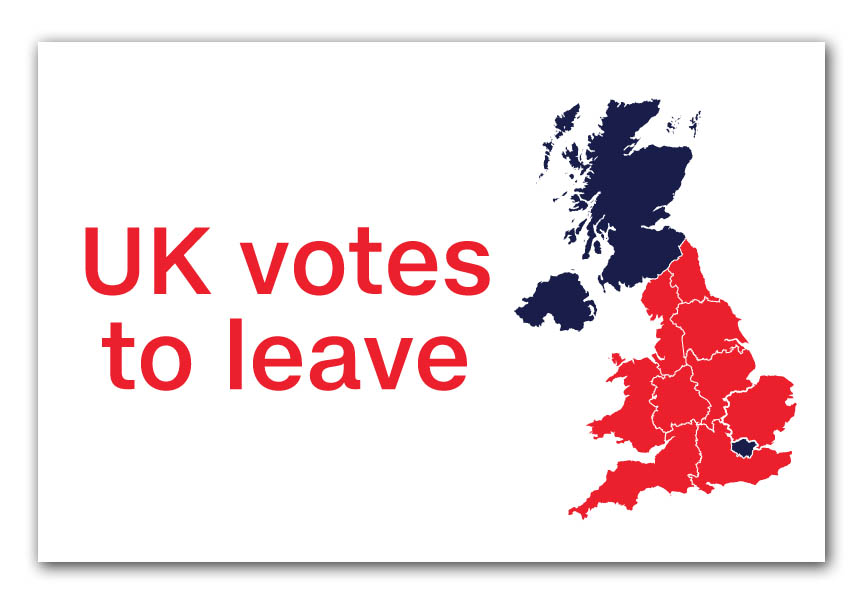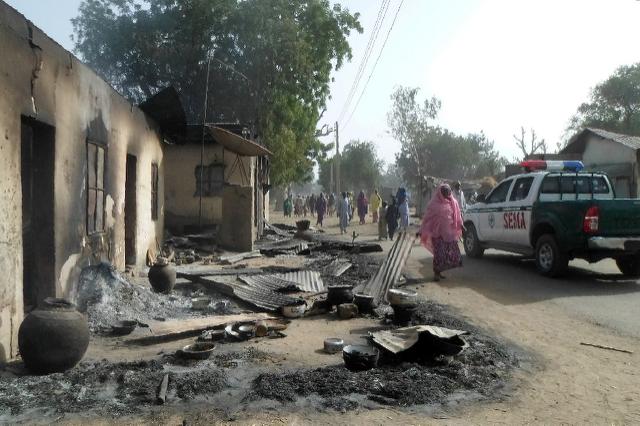
Mixed reaction
Markets start freaking out
‘Serious consequences’




N’Djamena (AFP) – With US and European support, African states threatened by Boko Haram are out to smash the militant Islamist group terrorising the region — but a coordinated response is required if they are to succeed.
A regional offensive launched early last year against the group by Chad, and Nigeria under new President Muhammadu Buhari has seen Boko Haram driven out from numerous towns and villages that it controlled in northeastern Nigeria.
Two weeks ago, Nigeria’s military said it would raid the group’s Sambisa Forest stronghold on the Cameroon border. The group also has hideouts within nearby Lake Chad’s huge maze of small islands and swampland.
Despite losing some ground in recent months the insurgents retain the capacity to launch attacks almost at will, notably via suicide attacks which require few resources.
British NGO Action on Armed Violence said earlier this week that Boko Haram attacks claimed three times as many victims last year as in 2014.
The group started wreaking havoc in Nigeria in 2009 and according to World Bank estimates has killed around 20,000 people, also sowing chaos and fear inside neighbouring Cameroon, Chad and Niger.
US and British troops will join the international coordination effort against the group, while Nigeria and France on Thursday signed an agreement on closer military cooperation, including intelligence sharing.
Nigerian Defence Minister Mansur Dan Ali saluted the deal as evidence of a “growing partnership” between Abuja and Paris.
An 8,500-strong multinational force has been drawn up to track the jihadists, but its deployment has been haphazard with little to indicate the extent of real progress.
Even so, the Nigerian general overseeing the force, Lamadi Adeosun, indicated Friday during a meeting with French Defence Minister Jean-Yves Le Drian that “much has been done and is still being done to win the battle and ultimately win the peace”.
The Nigerian army is expected to launch an offensive in the coming days so as “to deny Boko Haram its traditional Sambisa sanctuary”, according to Chad military sources in the capital N’Djamena.
Such an offensive has been in the offing ever since Buhari took office a year ago but has yet to materialise.
– Imminent action –
“The idea is to be able to announce at the next Abuja summit (on May 14) that this sanctuary no longer exists. That is a military and also a political imperative,” says a source close to the president.
The summit will bring together leaders of Cameroon, Chad, Niger and Nigeria — allied neighbours in the fight against Boko Haram — as well as French President Francois Hollande and representatives from Britain and the United States.
Boko Haram leader Abubakar Shekau appeared in a video late last month and “he still seems to be the leader and is hiding out in the Sambisa Forest,” according to a French military source.
The group is thought to number somewhere between 100,000 and 30,000. Its exact strength is hard to evaluate but the French source says that experienced fighters who have returned from Mali or Libya are no more than a small hard core.
The multinational force is preparing its own offensive along the border with Cameroon, Chad and Niger but time is of the essence with the rainy season approaching.
The multinational force, whose HQ is at N’Djamena although each nation’s contingent is under its own command, will have access to intelligence compiled by French and US drones and fighter planes — but communications, transport and logistics hardware are in short supply.
Coordination is paramount.
“If they are not coordinated they will never be able definitively to curtail Boko Haram,” a French military source warned.
General Adeosun says the international community should be doing more — red tape has held up 50 million euros ($55 million) of EU aid — and has asked for lifejackets and a consignment of flat-bottomed boats to take the fight to the enemy across the huge expanse of Lake Chad.
There are concerns Boko Haram may have received weapons via Libya from Islamic State through individual go-betweens, though Le Drian says that “for now we do not have proof of close links” between the jihadists.
On Saturday, Le Drian promised to do away with Boko Haram “barbarity” as he visited the Ivorian resort of Grand-Bassam, scene of a deadly March 13 attack blamed on an Al-Qaeda affiliate which killed 19.
“We are determined to fight together with the Ivory Coast authorities for our freedoms and against barbarity,” said Le Drian a day after pledging to lift the French troop contingent in the country from 600 to 900.
![A number of officials called for the European Union to help with the influx of immigrants [Reuters]](https://www.guardiannewsusa.com/wp-content/uploads/2016/04/immigrant-in-italy-3.jpg)
A “readmission agreement” would probably involve migrants from Nigeria being deported in exchange for EU economic aid for Abuja. It would be the bloc’s first major return deal with a sub-Saharan African nation — its only existing one is with tiny island nation Cape Verde.
The move comes after the EU signed a deal with Turkey earlier this year, in which Ankara agreed to accept the return of migrants landing in Greece — including Syrian refugees — in exchange for benefits, including aid and visa-free travel for Turkish citizens.
Striking a deal with Nigeria has become a focus for EU diplomats after a jump in arrivals of people from the country to Europe since 2014. While the number of Nigerians pales in comparison to arrivals from Syria, Iraq and Afghanistan, the EU considers the flow of Africans as a long-term structural problem.
Italy is lobbying especially hard for the EU to come to an agreement. The vast majority of migrants reaching the country come from Africa. Figures from the Italian interior ministry show the number of Nigerians arriving has increased 37 per cent this year compared with the same period in 2015.
Nigerians arrive almost exclusively across the central Mediterranean from war-torn Libya. Many African migrants destroy their identification documents during their journey, meaning a returns deal could be difficult to enforce if European authorities cannot identify where people should be deported to.
Nigeria’s population of more than 180m is expected to jump to 300m by 2030. Economic growth is not keeping pace, however. The government in the oil-rich state failed to capitalise on high crude prices and poverty levels remain high. The oil price crash has caused a severe slowdown and growth is forecast to be less than 3 per cent this year.
For many Nigerians the money they can potentially earn in Europe outweighs the risks of the journey. Virtually none of the migrants are believed to be refugees from the Boko Haram conflict that has devastated the northeastern region recently, according to the EU.
Given the population growth trend not just in Nigeria but across west Africa, “these pressures for migration are going to be huge”, the EU diplomat said.
Nigeria’s foreign ministry did not respond to a request for comment over a potential deal with the EU, but Abuja may look to the terms secured by Turkey. The EU has agreed to give Ankara €6bn in exchange for accepting migrants who land on Greek islands. The flow of migrants into Greece has slowed to a trickle since the deal was signed five weeks ago but rights groups say the agreement breaks EU and UN laws related to the processing of asylum seeker claims — a charge the EU denies.
Copyright © 2025 | MH Magazine WordPress Theme by MH Themes